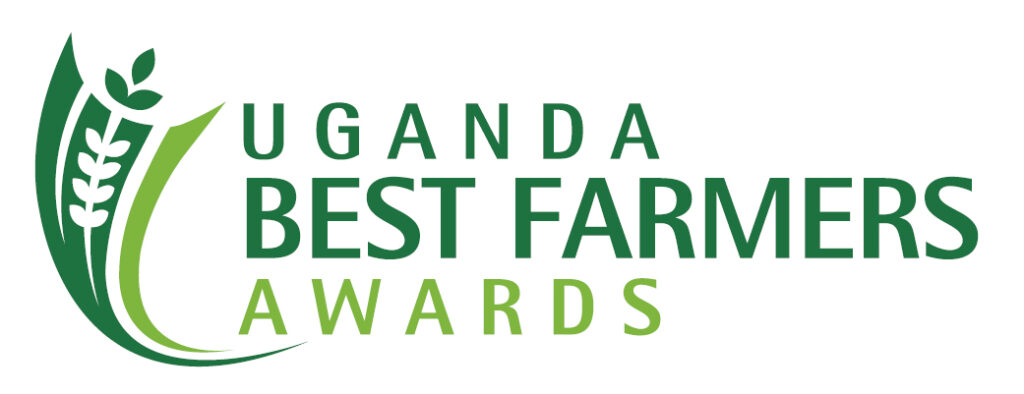
By Abdulkarim Ssengendo
Early 2016, Juliet Nagaba made a decision to venture into semi-zero grazing. Sharing a story of her farming journey, Nagaba who is the director of Nagaba Dairy Farm said dairy farming especially semi-zero grazing is a way to go for any prospective farmer.
She said the project is possible all over including both people living in urban areas and in the villages. Nagaba is a resident of Kyabandara cell in Sheema Central division-Sheema Municipality. Her farm is made up of 10 milking Frisian cows givingn 85 litres every day.
Nagaba told New Vision that having interest in a farming project is a key pillar that enables one to succeed. She emphasized that cows will produce a lot of milk depending on the way they are fed. Asked why out of many projects she chose to start with cattle rearing, Nagab stated that management of cows is not that expensive compared to other projects. She encourages people especially those with small land to start zero grazing farming.
The zero-grazing system, that involves feeding cattle with pasture or other food in a confined shade, was given prominence by heifers back in 1982 when it launched in Uganda. Alongside dairy farming, Nagaba has other projects including a 6 acres of banana plantation, 10 acres of silk, 5 acres of coffee and her farm is sitting on 35 acres. Her banana plantation gives her 60 bunches every two weeks and coffee can generate shs2 million per harvest while silk, which is a new project, gave her 18kgs of cacoon on her first harvest. She doesn’t regret investing her money in any of the projects.
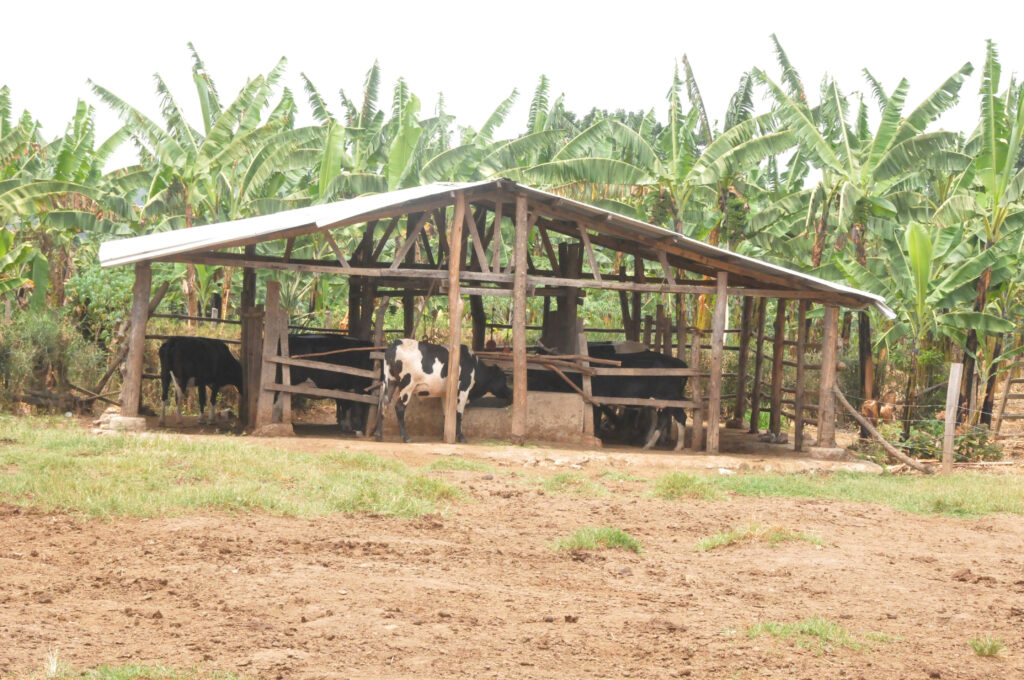
Value addition/innovation, record keeping
Nagaba had started producing yogurt but because of market challenges she halted it but she plans to resume the project. She has embarked on improving feeds for her animals in order to increase milk production which will be able to feed her yogurt production. She has grown improved pasture and made silage for value addition. Asked whether she keeps records, Nagaba said record keeping is important for any project to progress. At her farm record keeping is a priority.
Technologies, hygiene and Environment
Nagaba feeds her cows on local salt but also uses block soil salt. She has a pasture cutting machine which she uses to prepare feed for her cows. She started with a manual machine but later upgraded to an Engine machine. In a day her cows eat ranging from 35-40kgs per day. She also has a good store for the farm.
Regarding hygiene Nagaba ensures proper hygiene at her farm and she ensures everything used at the farm is clean including milking utensils. She emphasized that cleanliness at the farm adds value to the price of farm products including price for animals. Regarding environment protection, Nagaba has planted trees around her farm and home to keep a green environment. She advises farmers all over to invest in tree planting as this will help to generate rain which is needed for better growth of their crops and water for their animals.
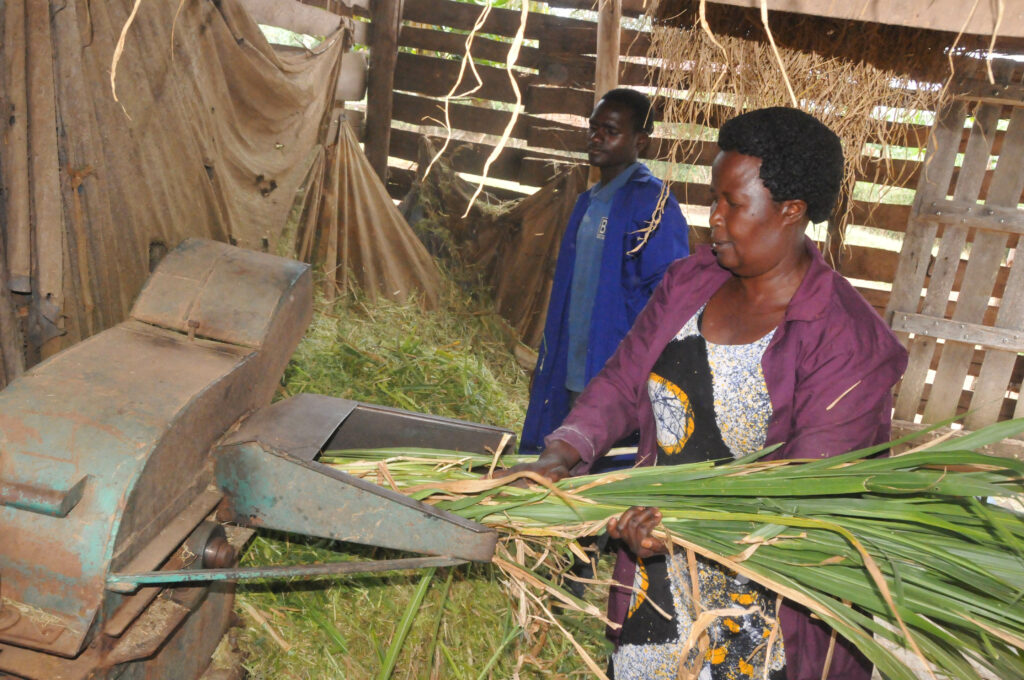
Family involvement, Market strategy and social impact
Nagaba believes involving family members especially children in your projects are a key pillar for the success and project continuity. She involves her children in all her farm activities and said this helps her even when she is not around everything remains moving forward. On the market,
Nagaba said the market is not yet good, especially for matoke. But for milk she sells in hotels around and dairy coolers. She appeals to the government to help establish a milk factory in Sheema Municipality and Sheema district as this will boost the market for their products especially milk. On social impact, she said students from different institutions train from her farm. She also trains other farmers around her village and from beyond. Getting visitors and trainees to train from her farm is a big gift to Nagaba. She is always prepared for all seasons including the dry season.
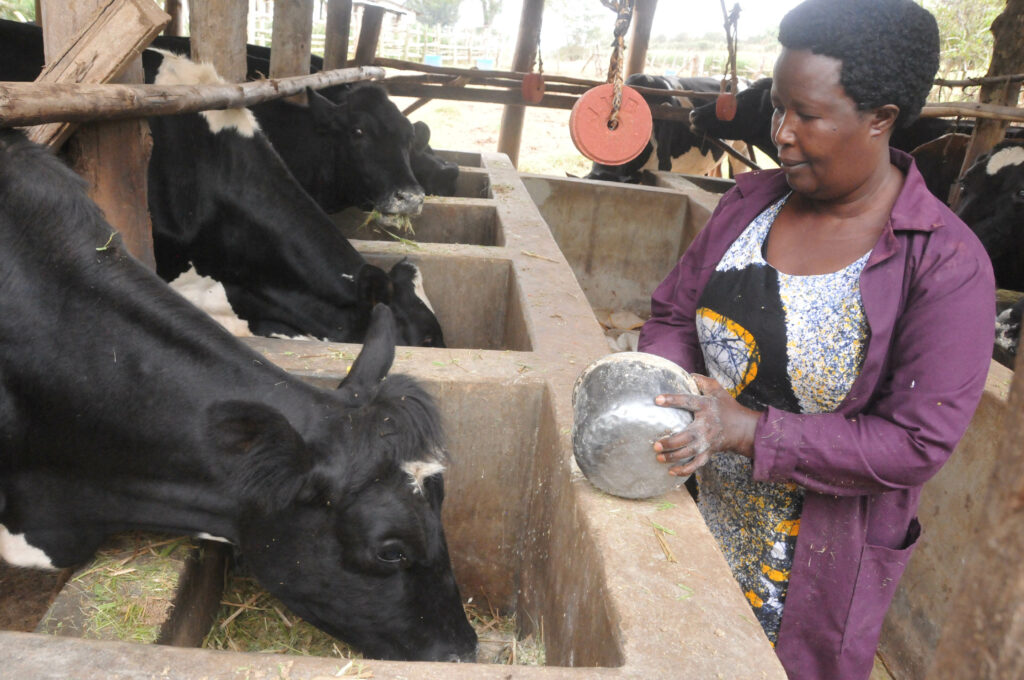
Farm management
Farming as a business is what Nagaba gives as a priority. Feed your animals on a balanced diet is another area she focuses on. She heads the farm operation as the overall supervisor at her farm. Controlling the spread of diseases is another area and she has put a footbath at the entry of her farm. She encourages farmers to invest in knowledge because knowledge is power. Keeping records for accountability purposes is another area for good farm management. Studying diary practices also helps her to manage her farm well. At her farm she has other workers who help her run the operations of her farm including her children. By 5am she is always up with her workers and they start milking. Her role is to take records of the milk but also sometimes she does milk herself. She also monitors other projects at her farm, banana plantation, silk and coffee.
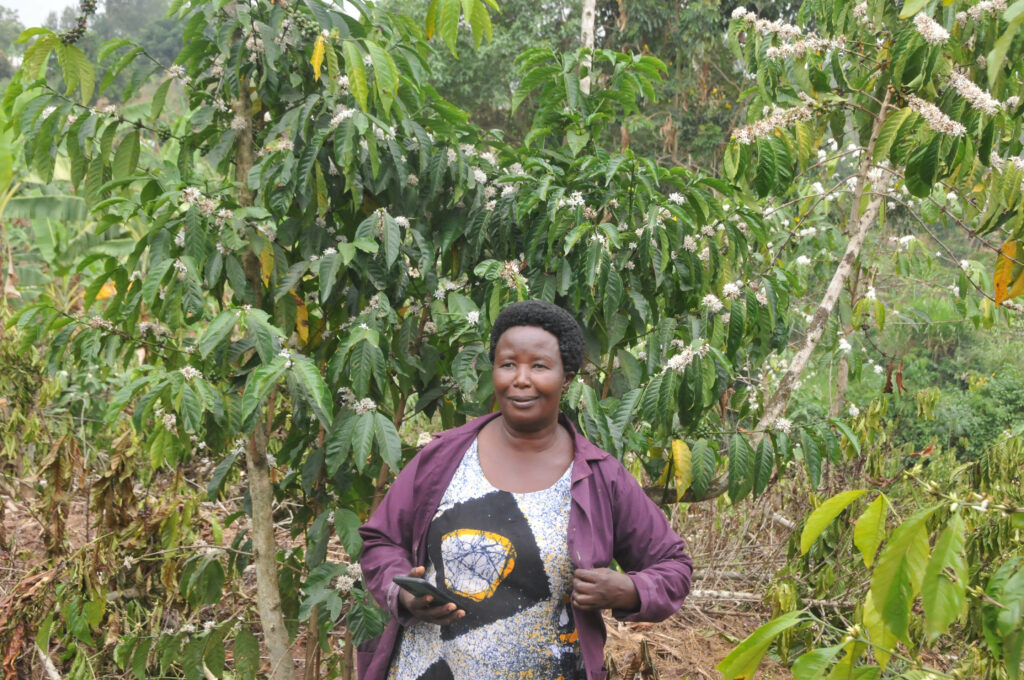
Difficult times, future plans and challenges
Nagaba said will never forget COVID time 2019, 2020 were the worst years she will never forget in life. She said they had produced in abundance but had nowhere to sell them. However, this opened her mind to give time to her projects. She has put up a 2000 litres rain harvesting water tank which is her major source of water she uses even during dry season. At her farm she has hydro and solar electricity these help her most especially providing security at her farm especially at night. Regarding her future plans, Nagaba focuses on value addition especially yogurt resuming yogurt production. She wants to expand her farm from 10 cows producing 85 litres to 200 litres dairy.
Asked about some of the challenges limiting her progress, Nagaba mentioned; ineffective acaricides is the biggest problem, tick resistance, they don’t have extension workers available to help them, price fluctuation especially for milk is another challenge and no market for their products. She encourages people in farming to sacrifice enough time on a project they can manage better. Involving family members in the management of their projects is what every farmer should focus on for sustainability and continuity. Being friendly to orders and preparing for future challenges like drought is another advice she advises farmers on.





